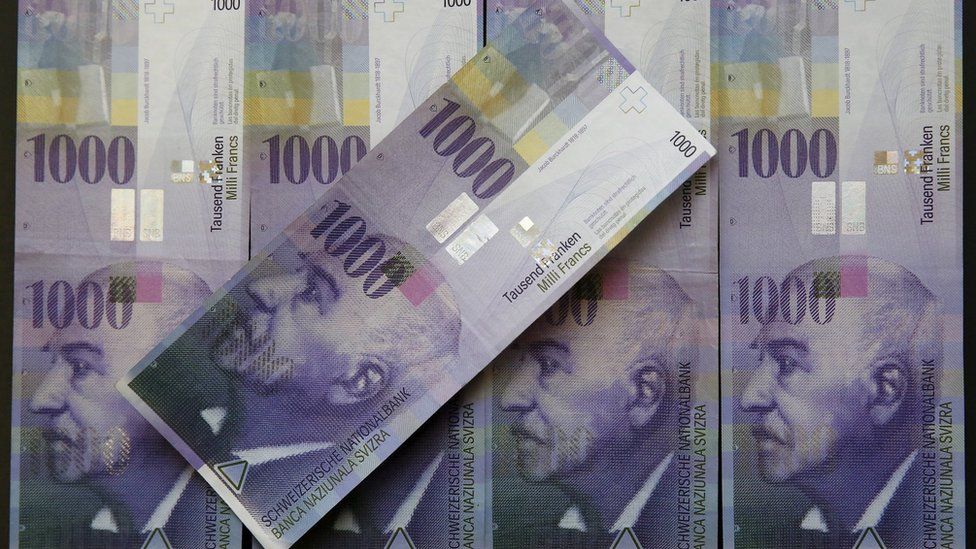US labels Switzerland a currency manipulator
- Published

The US has labelled Switzerland and Vietnam "currency manipulators", accusing the countries of intervening to limit the rise of their currencies against the dollar.
It said Vietnam wanted to keep the cost of its exports low, while Switzerland's designation was due in part to its response to financial turmoil from the pandemic.
Switzerland rejected the label.
It said it remained "willing to intervene more strongly" in the market.
"Foreign exchange market interventions are necessary in Switzerland's monetary policy to ensure appropriate monetary conditions and therefore price stability," the country added.
The designations came in the US Treasury Department's semi-annual report, which examines currency practices of major US trade partners.
The US said 10 other countries also warranted monitoring, including China, Japan, South Korea and Germany. It further added Taiwan, Thailand and India to the watch list.
In making a determination, the US looks at how much a country intervenes in currency markets, the size of its trade surplus with the US, as well as a broader measure of trade that includes financial flows.
What does the US say Switzerland and Vietnam did?
In the case of Switzerland, the US said the country's trade surplus with the US surged over the 12 months through June, in part due to a rush of gold exports in the first half of 2020, as American investors spooked by the pandemic bought up what is considered to be a less risky asset.
Swiss efforts to offset a spike in demand for the Swiss franc, likewise considered a "safe haven currency", also led to intervention in currency markets amounting to 14% of the country's economic output, the US said.
The intervention was "significantly larger than in previous periods," it added.
The Swiss have maintained that a sudden spike in the value of the franc would hurt the country's economy, expressing commitment to their practices, which include buying large amounts of US stocks.
But the US said Switzerland should use "a more balanced" policy mix to achieve its goals.
The US said Vietnam - where many firms relocated to avoid tariffs the US put on Chinese goods in 2018 and 2019 - had stepped up its intervention in foreign currency markets over the 12 months through June 2020.
It said officials wanted to limit appreciation of the dong as its trade with the US increased, thereby "gaining unfair competitive advantage in international trade".
Vietnam did not comment.
What does the label mean?
The US rarely names countries currency manipulators.
When it hit China with the label last year at the urging of President Donald Trump - a determination it quickly reversed - it was the first time it had made such a determination since the early 1990s.
The finding, in theory, triggers talks mediated by the International Monetary Fund (IMF). It also allows the US to limit access to certain funds, such as procurement contracts.
Under Mr Trump, US trade negotiators had already raised concerns about about the issue in talks with Vietnam, raising the prospect of tariffs.
It is not clear how president-elect Joe Biden will approach the issue.
In a statement, US Treasury Secretary Steven Mnuchin said the US would push Vietnam and Switzerland to change their practices, arguing that they threatened to hurt American businesses and workers.
"The Treasury Department has taken a strong step today to safeguard economic growth and opportunity for American workers and businesses," Treasury Secretary Steven Mnuchin added.
"Treasury will follow up on its findings with respect to Vietnam and Switzerland to work toward eliminating practices that create unfair advantages for foreign competitors."
Related Topics
- Published14 December 2020
- Published8 August 2019